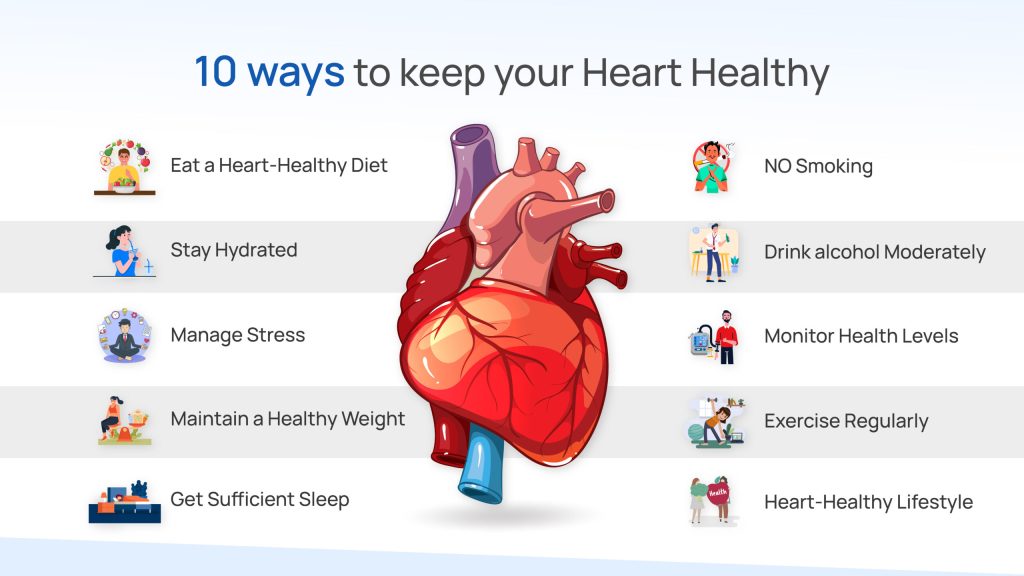Maintaining a healthy heart is essential for overall well-being. Here are some heart-healthy tips to help keep your cardiovascular system in top shape:
1. Eat a Heart-Healthy Diet
- Focus on fruits and vegetables: Aim for at least 5 servings of fruits and veggies daily.
- Choose whole grains: Opt for whole wheat, oats, quinoa, and brown rice over refined grains.
- Healthy fats: Incorporate unsaturated fats like those found in olive oil, nuts, seeds, and avocados. Limit saturated and trans fats (found in fried foods and some processed snacks).
- Lean proteins: Choose sources like fish (especially fatty fish like salmon), beans, and legumes.
- Limit sodium: Reduce your intake of salty foods and avoid adding too much salt to meals to help keep blood pressure in check.
2. Exercise Regularly
- Aim for 30 minutes a day: At least 5 days a week of moderate-intensity exercise like walking, cycling, or swimming.
- Include strength training: Building muscle helps maintain a healthy weight and keeps the heart strong.
- Get moving throughout the day: Small activities, like walking after meals or taking the stairs, also add up.
3. Quit Smoking and Avoid Excessive Alcohol
- Smoking is a major risk factor for heart disease, so quitting is one of the best things you can do for your heart.
- Moderate alcohol consumption: If you drink, do so in moderation. For women, that means up to one drink per day; for men, up to two.
4. Manage Stress
- Find stress-relief techniques: Meditation, yoga, deep breathing exercises, and regular relaxation practices can help lower stress and reduce heart disease risk.
- Set boundaries and make time for activities you enjoy to avoid burnout.
5. Maintain a Healthy Weight
- Keep an eye on your BMI (Body Mass Index): Being overweight or obese increases the risk of heart disease, so maintaining a healthy weight through a balanced diet and regular exercise can significantly help protect your heart.
- Track your waist circumference: Abdominal fat is particularly linked to higher heart disease risk.
6. Monitor Your Blood Pressure and Cholesterol
- Check your blood pressure regularly: High blood pressure (hypertension) is a leading cause of heart disease. Keep it in check with a healthy diet, exercise, and if necessary, medications.
- Manage cholesterol levels: Keep your LDL (“bad”) cholesterol low and your HDL (“good”) cholesterol high by eating heart-healthy foods and exercising.
7. Get Enough Sleep
- Aim for 7–9 hours of sleep each night. Poor sleep quality or too little sleep can increase the risk of heart disease.
8. Stay Hydrated
- Drinking water helps maintain proper circulation and keeps your blood pressure in a healthy range.

By focusing on these habits, you’ll be giving your heart the best care it deserves!



